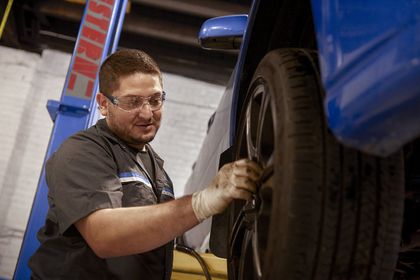Introduction
Vehicle emissions play a critical role in the air quality and environmental health of urban areas like Chicago. As a car owner, staying compliant with emission requirements is not only a legal obligation but also a step toward a cleaner environment. In this article, we’ll dive into the essential details of vehicle emission requirements in Chicago, what they mean for you, and how to ensure your car meets the standards.
Why Vehicle Emission Testing Matters
Emission testing helps reduce air pollution by ensuring that vehicles are not releasing harmful levels of pollutants into the atmosphere. These pollutants, such as carbon monoxide (CO), nitrogen oxides (NOx), and hydrocarbons, contribute to smog and respiratory health issues. Meeting emission requirements is essential for maintaining a healthier environment and complying with Chicago’s regulations.
Who Needs an Emission Test?
In Illinois, emission testing is typically required for vehicles registered in areas with high population density, including Chicago. Key points to consider include:
- Most gasoline-powered vehicles that are 4-10 years old must undergo testing every two years.
- Diesel-powered vehicles and electric cars are generally exempt from emission testing.
- Vehicles older than 1996 models may also be exempt, depending on the specific requirements.
How to Prepare for an Emission Test
Preparing your car for an emission test can help you pass on the first attempt. Follow these tips to ensure success:
- Fix the Check Engine Light: If your check engine light is on, address the underlying issue before scheduling your test.
- Warm Up Your Vehicle: Drive your car for at least 15 minutes before the test to ensure the engine is running at optimal temperature.
- Regular Maintenance: Ensure that your air filter, spark plugs, and oil are in good condition to reduce emissions.
- Use Quality Fuel: Fill your tank with high-quality gasoline to improve your car’s performance and reduce emissions.
What Happens During an Emission Test?
The emission test typically involves these steps:
- A certified technician will connect your vehicle to a testing device through the onboard diagnostic (OBD) port.
- The system will analyze data from your car’s sensors to determine if it meets emission standards.
- If your vehicle passes, you’ll receive a certificate that is valid until your next required test.
- If your vehicle fails, the test report will indicate what needs to be repaired before retesting.
How to Handle a Failed Emission Test
If your vehicle fails the test, don’t panic. Here’s what you should do:
- Review the test report to understand the issue.
- Schedule a repair service with a trusted mechanic. For professional assistance, visit our shop.
- Retest your vehicle after addressing the problem. In most cases, a retest is free if done within a certain time frame.
Benefits of Staying Compliant
Meeting Chicago’s emission requirements comes with several benefits:
- Improved air quality for the community.
- Avoidance of fines and penalties for non-compliance.
- Better vehicle performance and fuel efficiency.
- Contribution to reducing your carbon footprint.
Conclusion
Understanding and adhering to Chicago’s vehicle emission requirements is essential for legal compliance and environmental responsibility. Regular maintenance and proactive care can help you pass emission tests with ease. If your vehicle is due for testing or needs repairs, we’re here to help. Let’s work together for cleaner air and smoother rides!

